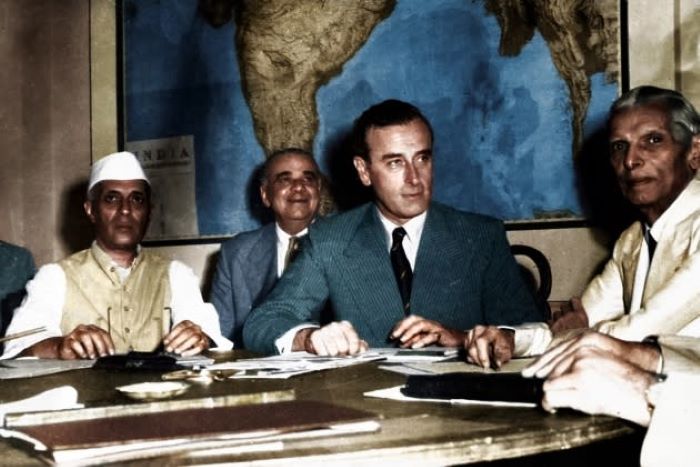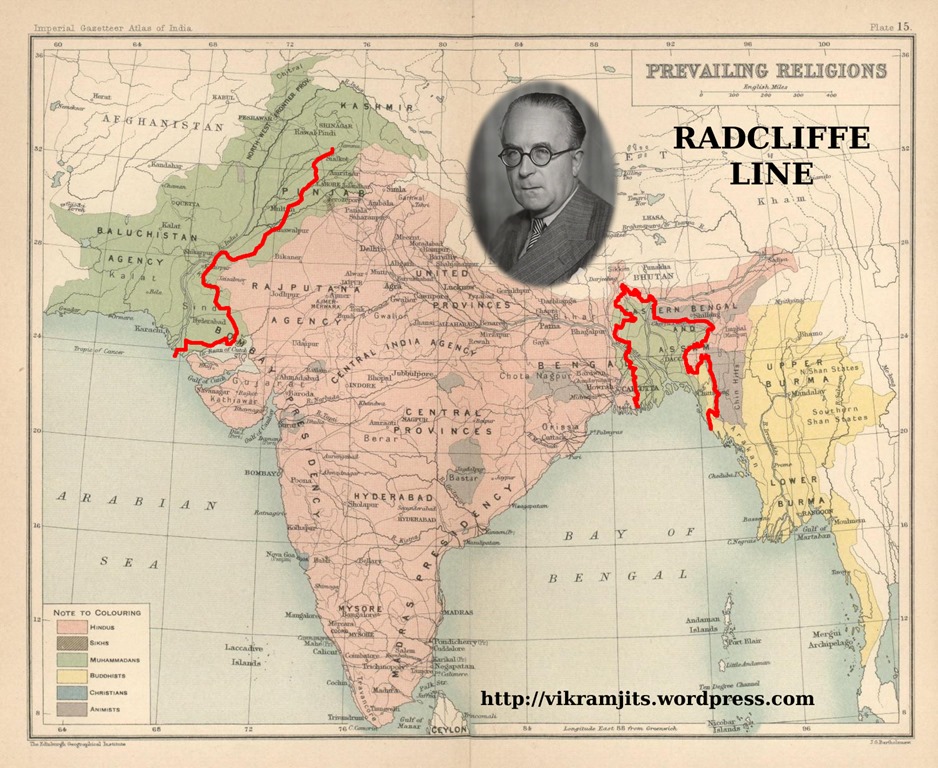No doubt, the division of India was an English policy – Dr. Hamida Khuhro
[Translator’s note: This is a translation of renowned historian Dr. Hamida Khuhro’s comprehensive interview, originally published in the Sindhi magazine Nao Niapo, Karachi in May, 1986. The interview panel consisted of Advocate Masood Noorani, Journalist Nasir Aijaz and Faqir Muhammad Lashari, with Mansoor Qadir Junjo’s assistance to the interviewers. Masood Noorani also contributed observation notes from his initial meeting with Dr. Khuhro, which were used as a preamble to the interview. The interview was later included in an anthology that contained interviews of Dr. Khuhro, published in various Sindhi newspapers and magazines.
In 2021, Dr. Hamida Khuhro Foundation, Sindh (Karachi-Hyderabad) published Nao Napo magazine’s interview as a separate booklet with a title of ‘Tareekh Ji Amhon Samhon’ (Face-to-Face with History). The booklet includes a preface by Mansoor Qadir Junejo. Zaffar Junejo]
FM: It was popular that Hindus were not allowed to ride horses and wear turbans, and were forced to become Muslims, and Matiari’s Syeds, with tricks and forcedly, converted countless Hindus!
HK: (She conceals her laugh.) It might be an act of the Matiari Syeds. (Tiny giggle.) It might be preaching attempts of Matiari Syeds. But there was no Mir’s (Darbar) or the government’s policy.
MN: Muhammad Ibrahim Joyo has also mentioned such an incident in his book, ‘Shah Sachal Sami’. He writes, ‘Once a Muslim called a Hindu Wannio; he objected and rebuked, then and there the Muslim declared that he, before him has said that he is not Wannio’, so, now he is a Muslim.’ The matter was referred to Muslim clergy, and they issued a decree that from then onwards he is a Muslim, and he was circumcised and pronounced as a Muslim.

Nehru, Mountbatten and Jinnah
HK: Such issues might have occurred here and there, but it was not an official policy. However, wherever Muslims were strengthened, Hindus faced trouble. Likewise, in areas where Hindus were in majority, Muslims were threatened.
NA: Such provoking attempts used to occur, particularly on Shab-e-Barat night. Muslims burned firecrackers in front of Hindu houses.
HK: You are referring to Sindh, but in…P, a cow was slaughtered, and its head was thrown into a temple. Anyways, it was a phenomenon.
FM: Communalism is a great tragedy of the subcontinent. What is your opinion about it?
HK: It is a tragedy of the world (She looks at FM and smiles), but you couldn’t pinpoint that it was confined to the subcontinent. It is a global phenomenon.
FM: But we are discussing our situation.
HK: (She interrupts with a bitter tone but smiles.) When you (Muslims) become a pious people, then it will be looked after.
NA: (Changes the topic.) English people played a lead role in organizing the Muslim League and founding Pakistan. In this regard, an Indian Commander has written a book, and one chapter’s title is ‘Divide and Quit.’ He has mentioned that after World War II, it was realized by English people that it is difficult to keep India. Therefore, a Muslim Party was promoted with the intention to keep Russia at a distance, and the newly formed country could take care of the interests of imperialism. On the other hand, Muslims’ center-hold in Turkey was dismantled, and it was assumed that Russia, through its Muslim pockets, may enhance its influence!
HK: No doubt, the division of India was an English policy. However, until World War I, Russian fear was not a serious consideration. However, after the Russian Revolution, they were concerned. But it was thought that through various reform measures, they may continue for another one or two hundred years. But immediately after World War II and the Indian National Congress’s ‘Quit India’ movement, they had to think differently. Afterwards, they considered the protection of European interests.

Look at the height of injustice. The person appointed to draw the boundaries had not seen India. He was not aware of the weather or the temperature, and yet he was authorized to draw lines.
NA: It means you are also of the same opinion that English people split and divided Hindus and Muslims, or they deliberately created such a situation?
HK: (She interrupts.) No, I couldn’t accept simple explanations. There were some reasons; they were already segregated, and then they became two opposing parties/factions, and both of them were governed by a third party. In fact, the foolishness of Hindus and Muslims widened the split. There was no visionary leader among them. Consequently, differences were accelerated and exploited by the English people, and as a result, a subjugated and client state was formed. Before that, a united India was a threat, and they assumed that it might be a powerful state. I am of the view that around the 1940s, in the time of Churchill, a scheme was evolved, immediately after World War II, it was implemented. But honestly, there is no evidence of what we are discussing today. While I was working in the India Office London, I tried to collect a letter or paper related to that idea, but I couldn’t find it. However, there are too many indirect pieces of evidence. In this regard, we may quote some evidence from Sikander Hayat and papers of Wali Khan.
NA: In the book ‘Freedom at Midnight’, it is mentioned that the boundaries of India and Pakistan were drawn by a person…
HK: Radcliffe.
NA: Yes, Radcliffe, but I want to say that the boundaries were drawn after the independence of both countries. They declared the border according to their own wishes, and as a result, disputes have continued until now.
HK: Look at the height of injustice. The person appointed to draw the boundaries had not seen India. He was not aware of the weather or the temperature, and yet he was authorized to draw lines. He was an advocate, and he was assigned to finish the task within a short time, perhaps three to four weeks. It was a big joke. I wonder if the Indian leaders were dead, or if none of them were capable of accomplishing such a task, or if they were assumed to be simpleton persons! I couldn’t understand how the Indian leadership, Nehru, Patel, or the Indian National Congress, or even the Muslim League, was under a spell or compromised. None of them raised objections.
Yes, Pakistan has a manufacturing flaw- Dr. Hamida Khuhro
MN: It is understood that the Muslim League needed Pakistan, whatever it might be, whether truncated or, in Jinnah’s words, ‘moth-eaten.’
HK: Okay, but they might have objected or raised a point to appoint another person or constitute a team! Neither Hindus nor Muslims raised objections. (She becomes a bit emotional and taunts) You are forming a country, and you are defining boundaries within three weeks! The Radcliffe Award is a joke. Another joke was the arrival of Lord Mountbatten. He was not aware of India. He was a fashionable person in England, deeply involved in his career advancement. He believed that being a cousin of the king, it was his prerogative to become the Viceroy of India and be a step ahead (She becomes bitter, and, she utters), he gained support from his wife and succeeded in getting approval for the partition plan from Nehru and Gandhi. Interestingly, Gandhi also supported him.
FM: What is the manufacturing flaw with Pakistan? Can’t even a democracy function?
HK: Yes, Pakistan has a manufacturing flaw. Muslims were not experienced in politics, and there was no strong political party. Just imagine, after the Lahore Resolution in 1940, Pakistan came into being within seven years. Another ‘flaw’ was the interest of western countries in the creation of Pakistan. They needed a land/country where they could have influence. Another solid reason was a reward for the Punjabi army for their support in the World Wars. It is clearly mentioned in Malik Khizr Hayat’s letters, ‘We have served a lot, and now what is the reward for the army?’ Although we don’t know the response from the other side regarding that letter, but the point must has been taken into consideration. In fact, Pakistan was created as a gift for Punjab, with Bengal becoming a part of it, but later it excluded. But until now, we are part of that gift (She ends her sentences with some bitterness). Punjab also inherited two strong institutions – bureaucracy and military. In united India, the Indian Civil Service was called the ‘Steel Frame’ of the Empire. Another issue in this regard was the illiterate public, particularly in Sindh. Immediately after Sindh’s separation from Bombay, some efforts were made to establish a university, but the idea was opposed by the English people as well as Hindus. Thus, Sindh had to wait until 1946 to have its own university. Now that area/province was handed over to Punjab, go and rule them. Now, what options do we have? We are struggling. Pakistan has only been around for thirty-nine years. In the life of a nation, it is not a long time. We couldn’t blame Sindhis for failing to handle the situation. (Continues
Published under International Coopertaion with "Sindh Courier"
Comments